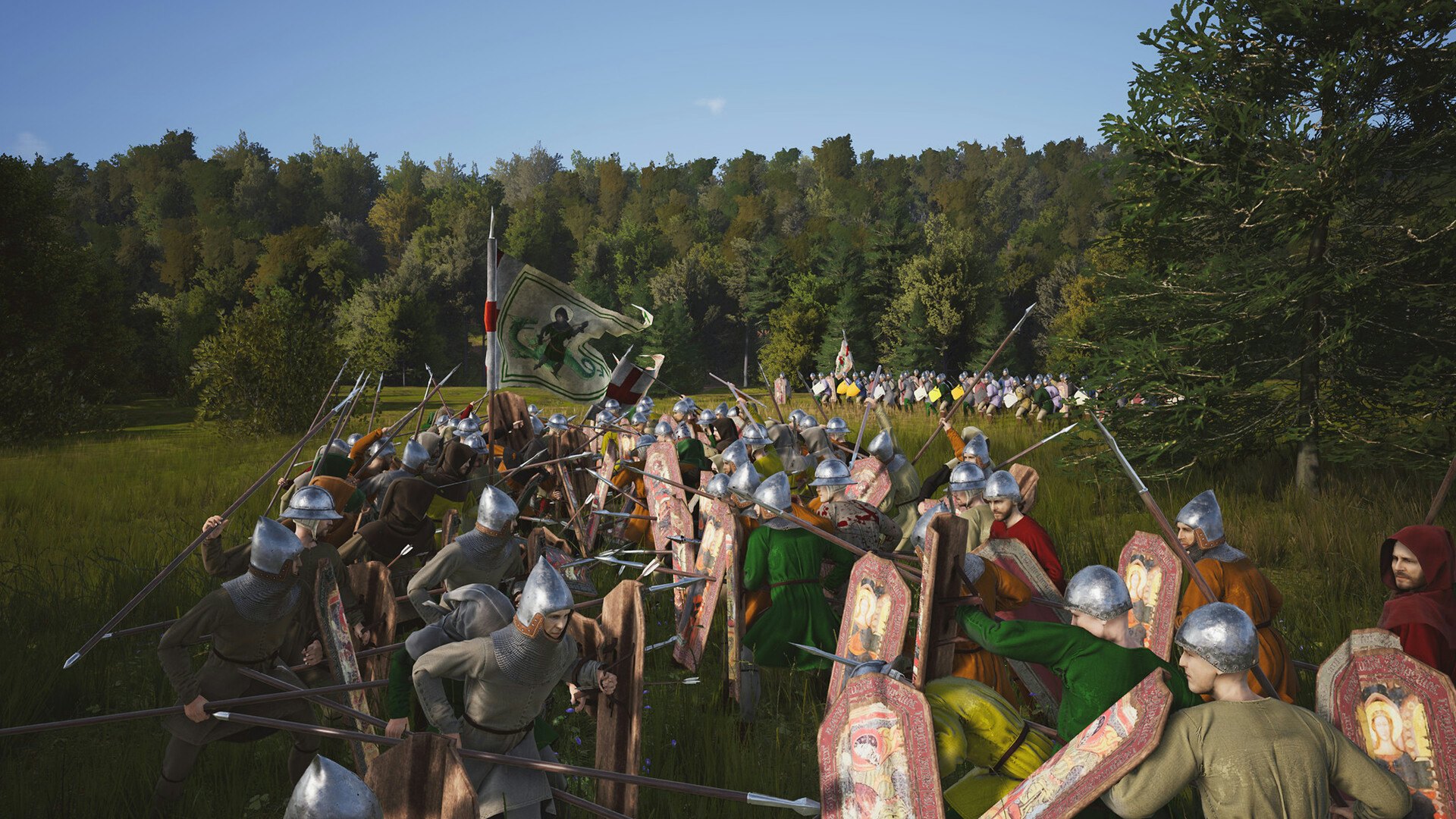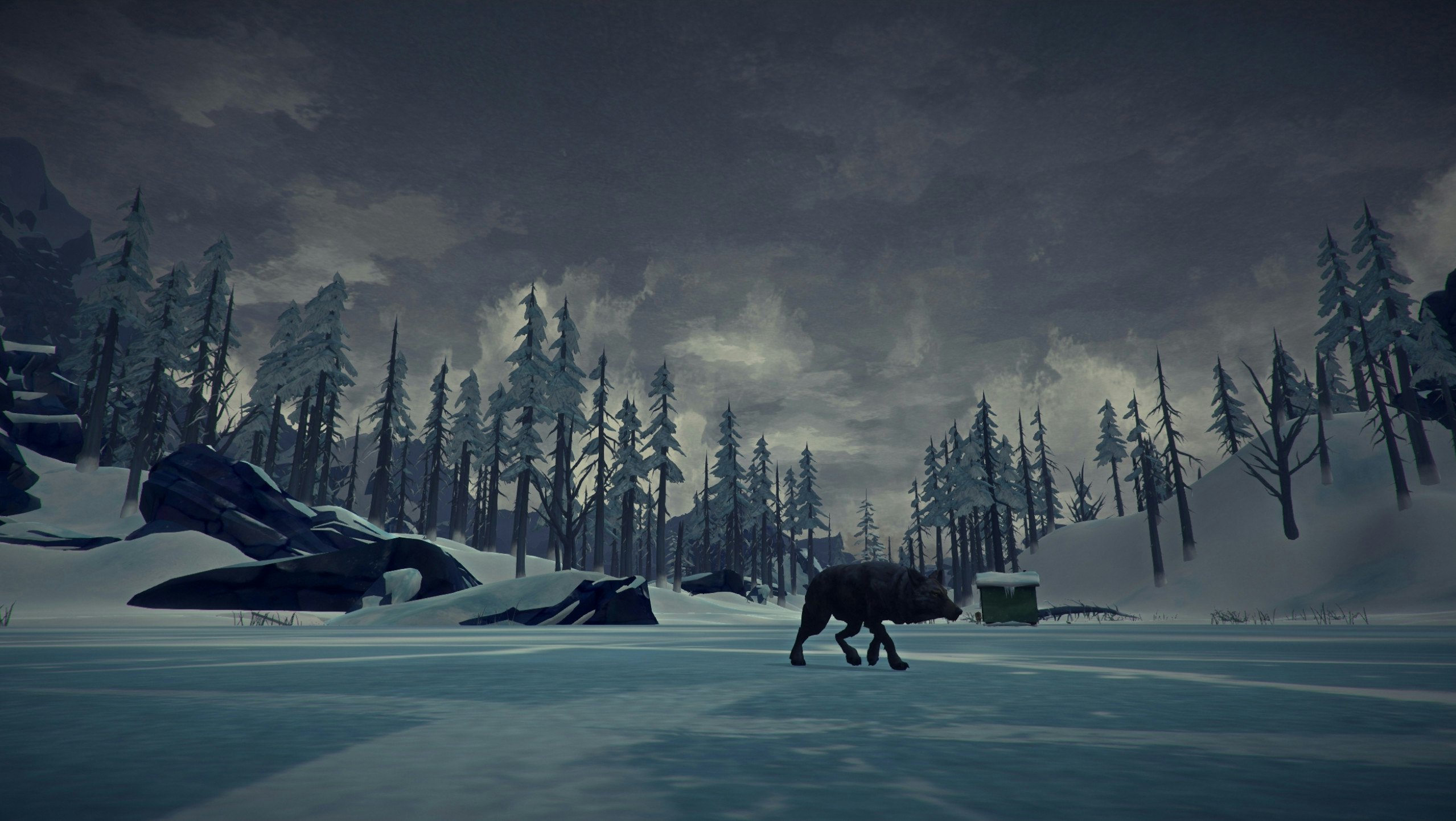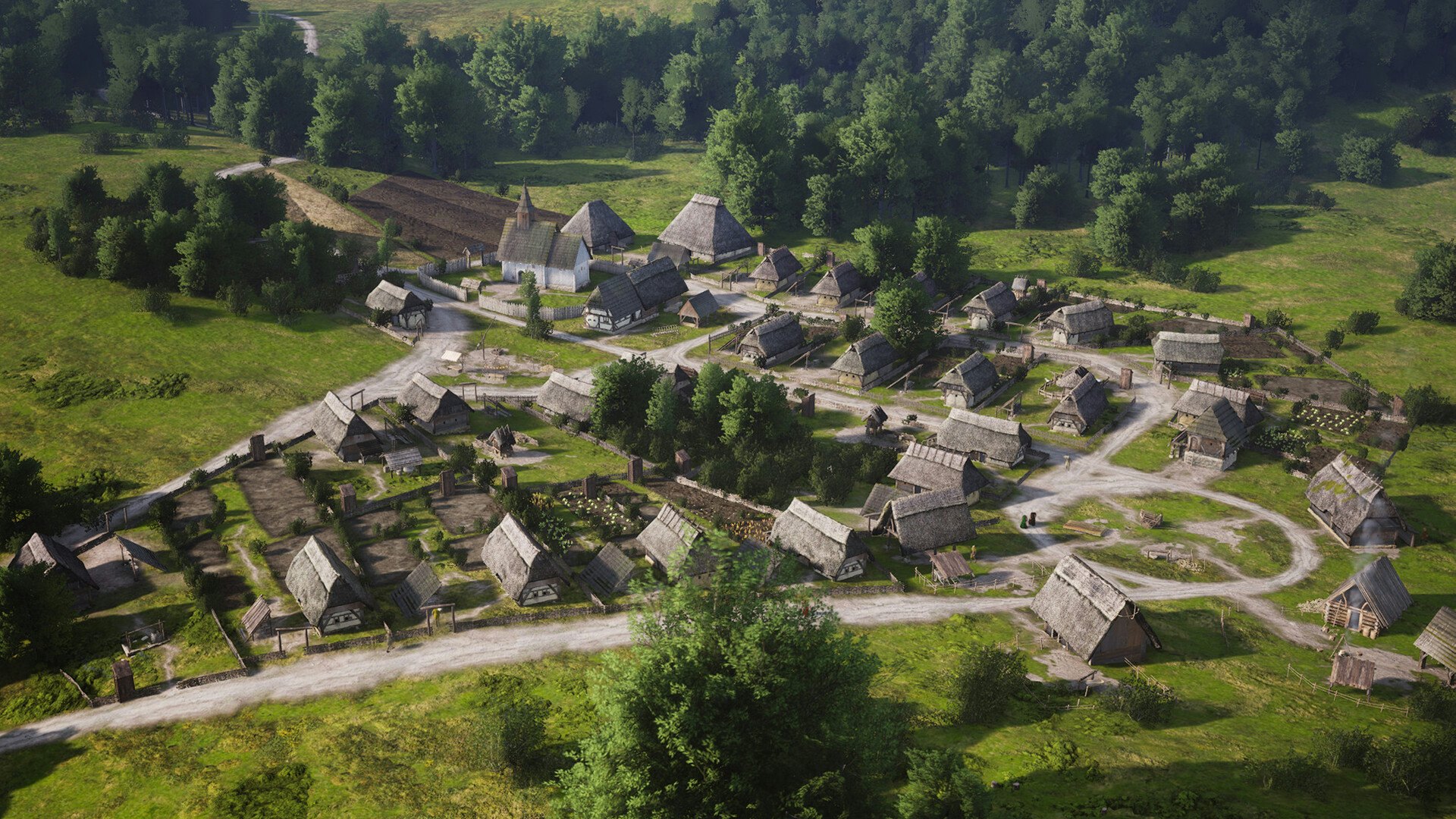
By any measure, Manor Lords has been a huge success since its Early Access launch in April. Well, by almost any measure. Last week, the CEO of Hinterland (the studio behind The Long Dark) shared a post on LinkedIn criticizing Manor Lords developer Slavic Magic for what he perceived as too slow of an update schedule. For a popular Early Access game like Manor Lords, criticism of the speed of updates has practically become an expected part of the development cycle, but in this case, a response from the publisher’s CEO laid bare just how toxic such a mindset has become in gaming.
The back-and-forth began when Hinterland CEO Raphael van Lierop wrote that Manor Lords is “a pretty interesting case study in the pitfalls of Early Access development when a game with a small team (and heavily marketed as such) hits the reality of a hungry audience.”
Van Lierop went on the say that “A heavily systems-centric game needs either a range of maps, game modes, or some amount of proc-gen dynamism to keep it fresh,” and criticized publisher Hooded Horse for not stepping in to help Grzegorz Styczeń, the developer responsible for creating most of Manor Lords. Van Lierop pointed to the game losing players after launch as evidence that they were unhappy with its content, while acknowledging that shedding players is normal after an Early Access launch.
In a response, Hooded Horse CEO Tim Bender took the mentality of the post to task, addressing not just Van Lierop’s comments, but a mindset that he says is responsible at least in part for the current unsustainable state of the games industry.
“This is exactly the kind of distorted endless growth/burden of expectations/line must go up perspective that causes so much trouble in the games industry,” Bender wrote.
Bender acknowledges that player counts have dropped since release, but doesn’t seem to see it as a problem, noting that it’s perfectly normal for a single-player game. He even says that he anticipated responses like Van Lierop’s, and warned developer Styczeń not to listen to them.

“Success should not create an ever raising bar of new growth expectations,” Bender wrote. “Not every game should be aimed at becoming some live-service boom or bust. And a release should not begin an ever-accelerating treadmill on which devs are forced to run until their mental or physical health breaks down.”
What’s most striking about Bender’s statement is just how uncommon it is to see coming from someone in his position as the head of a publisher. While executives often pay lip service to the health of their teams in vague ways, few actually step in to defend developers from people demanding more of them, and it’s even more rare to see one take an active stance against the games industry’s toxic growth mindset. Especially at larger publishers, fealty to shareholders often makes individual developers themselves the least respected part of the development process, as concerns like healthy working conditions or job stability become impediments to ever-growing profits.

While slow updates might be frustrating for players, leaning into a constant cycle of productivity is unhealthy even for the model’s winners. Helldivers II developer Arrowhead Studios has spoken publicly about the struggle to balance the need for fixes to existing systems with player demand for new content, and while it’s still massively popular, it has lost some players as the cadence of updates slows.
For his part, Van Lierop has since apologized to both Slavic Magic and Hooded Horse, noting that he himself is a fan of Manor Lords. Van Lierop says that his comments have led to a negative response not just to him but to others at Hinterland.
Ultimately, the incident represents not just a spat between two gaming executives, but a clash of expectations with implications for the industry as a whole. There’s likely no stopping the constant demand for more from games — from players wanting more updates and shareholders wanting more money, all at accelerating speeds. But while the standards of the industry aren’t likely to move in a better direction any time soon, it falls to people in power at developers and publishers to push back in their own way. It won’t change the industry overnight, but it could make it healthier, one game at a time.







